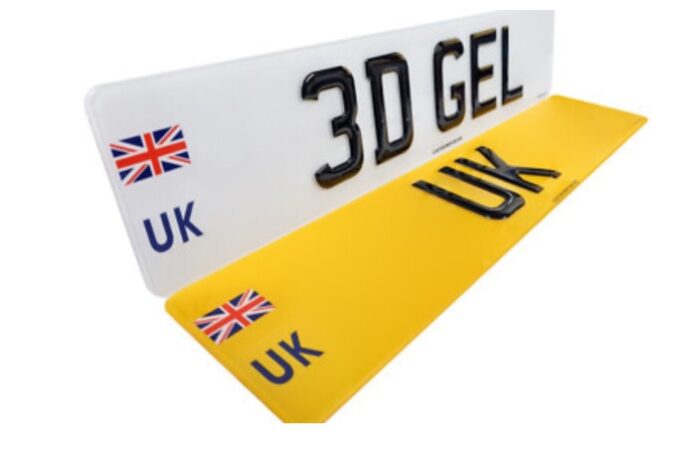There’s something oddly satisfying about pulling up in a car that feels completely yours. Not just the colour, the trim, or the way the seats hug you—but the subtle detail on the front and back that makes people pause for a second. We’re talking about private plates. In the UK, they’ve grown from being the reserve of celebrities or luxury car owners into a trend that everyday drivers are embracing.
This guide takes you through everything you need to know: what private plates are, why people buy them, how to get your hands on one, and even the nitty-gritty rules you can’t afford to ignore. Whether you’re curious about making a bold statement, or just quietly adding a personal touch, consider this your no-nonsense, slightly opinionated, and practical crash course.
What Exactly Are Private Plates?
Private plates—sometimes called personalised registrations—are customised combinations of letters and numbers assigned to your vehicle. Instead of driving around with the standard-issue identifiers like “AB12 XYZ,” you can own something a little more memorable. It could be your initials, a word that means something to you, or even a cheeky nod to your favourite hobby.
In the UK, these plates are overseen by the DVLA (Driver and Vehicle Licensing Agency). That means they’re totally legal when purchased and assigned properly. They’re not just stickers you can slap on a bumper—your plate is essentially your car’s identity, so everything has to be done through the proper channels.
Why Do People Buy Them?
People buy private plates for the same reason they choose a particular wristwatch or phone case: identity and expression. For some, it’s vanity—let’s be honest. For others, it’s sentimental, marking birthdays, anniversaries, or loved ones’ initials. And then there’s the group who see them as an investment, hoping the value of a unique plate will rise over time.
It’s also worth noting that private plates can disguise a car’s age. While most standard registrations are tied to a year, personalised ones don’t necessarily reveal when a car rolled off the factory line. For buyers of used vehicles, that’s a subtle perk.
The Cost Factor
One of the biggest myths is that private plates are only for the rich. That couldn’t be further from the truth. Sure, some plates fetch six or even seven figures at auction, but the DVLA regularly lists plates for as little as £250.
At the other end of the spectrum, record-breaking prices have reached well over £500,000 for plates like “25 O” (a nod to the Ferrari 250). But most of us aren’t looking to spend a house deposit on a car accessory. The beauty lies in the middle ground—finding something personal, clever, and affordable without remortgaging your home.
The Buying Process
If you’re itching to get one, there are three main routes:
- Direct from the DVLA
The DVLA runs auctions and also lists plates for fixed prices. This is the safest, most straightforward method. - Through a dealer
Many companies act as middlemen, sourcing rare plates and handling the paperwork. They can make life easier but often come with a premium. - Private sales
You might find someone selling a plate through adverts or online marketplaces. This can sometimes lead to bargains—but also headaches if the transfer isn’t handled correctly.
Once you’ve secured a plate, you’ll need to transfer it onto your vehicle through DVLA’s assignment process. It’s not complicated, but it does involve forms and fees. Think of it like adopting a pet: paperwork first, bonding second.
Rules You Can’t Ignore
Now, this is where things get serious. The UK has strict laws about how plates must look and be displayed. That quirky font you spotted on a friend’s car? Illegal. The spacing someone used to make a plate spell a word more clearly? Also illegal.
Here are the basics:
- Characters must be in the standard UK font.
- No altering spaces to change meaning.
- No decorative backgrounds, logos (except official identifiers), or tinted covers.
- Plates must be reflective with black characters on white (front) and yellow (rear).
Get it wrong, and you could face fines of up to £1,000, plus a failed MOT. Not exactly worth it for the sake of artistic flair.
The Emotional Side of It
Beyond the rules and the admin, private plates carry a human touch. They’ve become a way to honour someone you love, mark life milestones, or just make your commute a little less bland. Imagine passing your car every morning and seeing something that makes you smile—it’s a small joy, but a surprisingly powerful one.
And then there’s the recognition factor. Some people love the idea of standing out on the road. For business owners, plates can even become part of branding. If your company initials are on display every time you drive, you’re essentially advertising in traffic.
How to Pick the Right Plate
This part is a mix of creativity and practicality. Ask yourself:
- Do you want it to reflect your name or initials?
- Would you rather make a joke, or go sentimental?
- Are you buying for yourself, or as a gift?
Remember, simplicity usually works best. The more complicated or “forced” a plate looks, the less timeless it becomes. And don’t underestimate how quickly trends fade. What feels witty now may feel outdated in five years.
Where Do Physical Plates Come From?
Once you’ve secured your registration, you’ll need the actual acrylic plates made. This is where plate makers come in. Only registered suppliers can produce legal plates, and they’ll ask for proof of your right to use the registration before printing.
If you’re searching online for a number plate maker near me, make sure you’re dealing with a DVLA-registered provider. They’ll ensure your plates meet the reflective, spacing, and material standards required. Anything else is not only illegal but could get you pulled over.
Maintenance and Care
Plates don’t demand much, but they do need basic care. Clean them regularly—grime, road salt, and bugs all dull the reflective coating. Avoid pressure washing at close range, which can damage the surface. And if one gets cracked or faded, replace it quickly. Plates are part of your car’s identity, after all.
Private Plates as Investments
It might sound strange, but plates can appreciate in value. Short, simple ones (like single initials or names) are especially sought after. It’s similar to domain names on the internet—the rarer and more memorable, the higher the potential value.
Still, buying with investment in mind is risky. There’s no guaranteed market, and popularity shifts. If you’re buying primarily for personal satisfaction, any future profit is a bonus.
The Market Today
Demand is strong and still growing. Each year, thousands of new plates are released, and auctions continue to attract attention. Social media has played a role too—people love showing off their unique registrations, creating a subtle sense of “status currency.”
But don’t let that put you off. Even if your dream plate is taken, there are endless creative combinations available. Patience and a little imagination go a long way.
Everyday Relevance
You don’t have to drive a Bentley to justify a private plate. A modest hatchback with a personalised registration can feel just as special. In fact, it’s sometimes more endearing to see a playful plate on a small car than a flashy one.
And if you’re worried about resale, don’t be. Plates can be retained when you sell a vehicle, meaning you carry your identity with you to the next car.
A Word on Standard Plates
Of course, we can’t ignore that most people still drive with regular registrations. And there’s nothing wrong with that. Standard number plates do their job perfectly well—they’re clear, practical, and law-abiding. Private plates are simply an optional layer of individuality.
Final Thoughts
Private plates aren’t essential, but they’re undeniably fun. They’re a chance to stamp your personality on a vehicle, spark conversations, and maybe even invest in something with long-term value.
If you’re considering one, my advice is simple: don’t overthink it. Choose something meaningful to you, make sure it’s legal, and enjoy the little thrill of seeing it every time you get behind the wheel.
After all, cars are more than just machines. They’re part of our daily lives, often tied to big memories and small rituals. A private plate is just another way to make that bond a little more personal.

